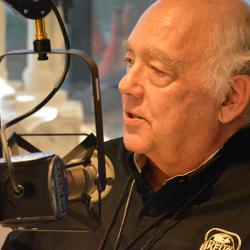In today’s News:
Abortions stop in Missouri
Operation Rescue believes Planned Parenthood in St. Louis has stopped performing abortions and has done none in months. Instead, the group found that the St. Louis facility is referring women to a new Planned Parenthood a few miles across the border in Illinois for abortions. The St. Louis facility still has a license to do abortions, but it is choosing not to. An Operation Rescue spokesman said he believes the reason is because Planned Parenthood does not want to comply with Missouri’s pro-life laws. The St. Louis facility had a poor reputation. Operation Rescue documented 75 medical emergencies at the facility over the past several years. In 2019, state health leaders tried to revoke its license, citing “multiple life-threatening abortions,” but a state commissioner ruled in favor of Planned Parenthood.
Ohio bans abortion drugs by telemedicine
On Saturday, Ohio Gov. Mike DeWine signed a bill banning the use of telemedicine to administer the abortion pill in the state. The bill, SB 260, would effectively ban telemedicine abortions in Ohio by requiring that a physician be present when the first of the two drugs in the abortion pill regimen is administered to a woman. Failure to abide by this law could result in a fourth-degree felony, and repeated violations of the law could result in the suspension of the offending physician’s medical license. According to the FDA, at least 24 known women have died from complications associated with the abortion pill and countless women have shared their personal stories of the horrific effects they have endured after taking the abortion pill regimen. Despite claims that the abortion pill is as “safe as Tylenol,” it carries with it a four times greater risk of complications than a first trimester surgical abortion.
Supreme Court sidesteps a First Amendment case
The U.S. Supreme Court sidestepped an opportunity to rule on behalf of the First Amendment right for pro-life speech around abortion centers. The Supreme Court declined to hear Bruni v. City of Pittsburgh, which challenges a law enacted by the city that bans pro-life speech — even prayer — in painted 15-foot buffer zones outside medical facility entrances. The city then chose to paint such zones outside only two facilities in the entire metropolitan area, Pittsburgh’s two abortion centers, and enforced the ban against pro-life speech only. This bans the free speech of sidewalk counselors and those handing out literature informing pregnant women of resources available for them and their children. However, speech on other subjects has been permitted inside the zone. Despite the language of the ordinance and how it was applied, the lower court interpreted the ordinance in such a way that pro-life speech is permitted. And the lower courts did not apply the Supreme Court’s more recent precedent striking down restrictions on speech (Reed v. Town of Gilbert) and pro-life speech outside an abortion clinic (McCullen v. Coakley), and instead relied upon the older case of Hill v. Colorado.







